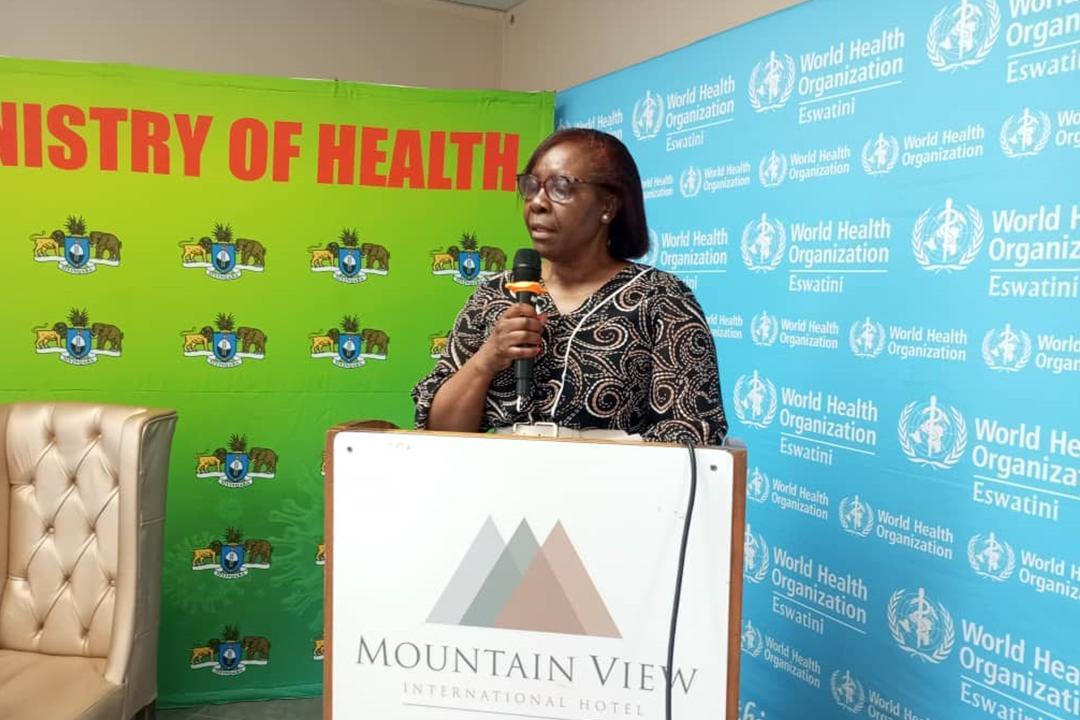Africa-Press – Eswatini. Eswatini has been urged to step up domestic investment in its health sector to build a resilient, well-equipped, and sustainable workforce by 2030.
This call was made yesterday morning by World Health Organization (WHO) Representative Dr Susan Tembo during the launch of the Human Resources for Health Strategy (2025–2030) and the Essential Health Care Package (EHCP), held at Mountain View Hotel.
Dr Tembo commended the Ministry of Health for its forward-thinking leadership and inclusive approach in developing the two transformative documents. She highlighted that the strategies were the result of a consultative process, grounded in the findings of the Health Labour Market Analysis of 2023 and aligned with the Health Sector Strategic Plan (2024–2028).
“These tools offer a bold and clear vision to strengthen the foundations of Eswatini’s health system,” she said.
She projected that Eswatini would require at least 26,500 health workers by 2032 to meet its Universal Health Coverage (UHC) targets. While acknowledging the progress made—from increasing health worker density from 37.7 to 50.5 per 10,000 people between 2016 and 2022—she noted that the country was still two-thirds of the way toward the required threshold.
Dr Tembo also cited a need for a 19.3% increase in the health workforce over the next decade to meet rising demand. She expressed concern about disparities in the distribution of health workers, noting that 55% of the workforce served urban areas—home to just 23% of the population—while rural areas, where 77% of the people reside, were served by only 45%.
She also raised the challenge of brain drain, revealing that 41% of current health workers were considering migration in search of better opportunities.
Despite these challenges, Dr Tembo expressed confidence in the country’s new strategy, which she said directly addressed key issues through five strategic priorities: aligning investments across sectors, expanding employment opportunities, strengthening education and training, improving workforce management, and enhancing governance and coordination.
“This is a holistic plan that not only aims to increase numbers but also focuses on quality, motivation, and long-term sustainability,” she said.
Turning to the Essential Health Care Package, Dr Tembo described it as a vital guide for health service delivery. She said it outlines comprehensive services—from health promotion and disease prevention to treatment, rehabilitation, and palliative care—ensuring that all citizens can access quality health services, regardless of location.
She emphasised that realising the vision set out in these documents would require increased domestic financing, efficient systems, stronger coordination among stakeholders, and active community participation. She called for ongoing collaboration with ministries such as Finance, Education, and Labour, as well as the Civil Service Commission, development partners, and the private sector.
In closing, Dr Tembo expressed appreciation to the Ministry of Health, WHO technical teams, and all partners who contributed to the strategy’s development. She underscored that achieving first-world status by 2030 would depend heavily on the health and well-being of the nation’s people.
“The health of our people depends on the strength of our health systems,” she reminded attendees.
For More News And Analysis About Eswatini Follow Africa-Press







